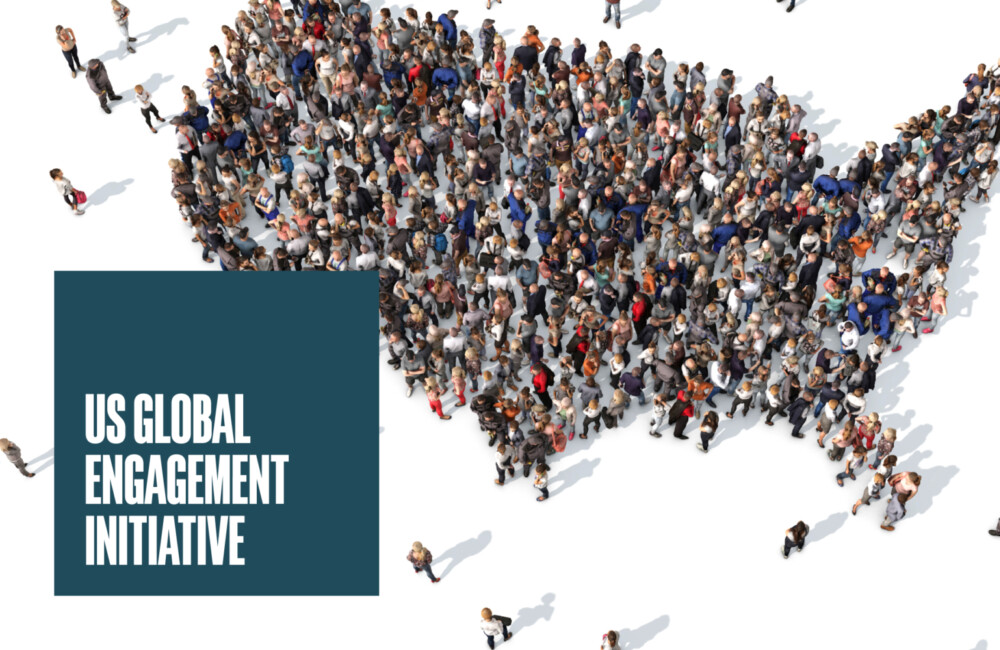Framing ethical perspectives
As countries grapple with global issues, such as climate change and the impact of emerging technology, the way that nations interact has never been more consequential. Our experts, programming, and impact initiatives work to analyze the foreign policy of the United States and other nations with an aim to explore shared values and produce agenda-setting resources.
Foreign Policy Resources
International affairs, global governance, and more
MAR 28, 2024 • Podcast
The Humanization of Warfare: Ethics, Law, and Civilians in Conflict
APR 9, 2024 • Video
Algorithms of War: The Use of AI in Armed Conflict
From Gaza to Ukraine, the military applications of AI are fundamentally reshaping the ethics of war. How should policymakers navigate AI’s inherent trade-offs?
MAR 28, 2024 • Video
Unlocking Cooperation: The Global South and Global North
In the inaugural panel of the "Unlocking Cooperation" series, Ramu Damodaran leads a discussion on forging a path forward for Global South/North collaboration.
Related Initiatives
Ethics & International Affairs Journal
Ethics & International Affairs is the quarterly journal of Carnegie Council. It aims to close the gap between the theory and practice of ethics.
Model International Mobility Convention
The primary goal of the Model International Mobility Convention (MIMC) is to formulate new rules for migration and asylum that can benefit both migrants and refugees as well as their states of origin, transit, and destination.
Explore Our Foreign Policy Resources

OCT 21, 2013 • Article
Ethics on Film: Discussion of "Iron Man 3"
So what can a blockbuster movie about a superhero tell us about current American attitudes towards U.S. foreign policy, PTSD, racial stereotypes, the War ...

OCT 7, 2013 • Podcast
Important Choices: Foreign Policy and Defense Spending
How much does the U.S. actually spend on defense and where does that money go? Lawrence Korb, an expert on the federal budget, the ...

OCT 4, 2013 • Podcast
The Road to War: Presidential Commitments Honored and Betrayed
The last declaration of war authorized by Congress was World War II, yet the U.S. has been entangled in many wars since. Why have ...

SEP 30, 2013 • Transcript
The Failure of the Mainstream Media to Cover the UN: Who's to Blame?
Former "New York Times" UN bureau chief Barbara Crossette explains why the U.S. media has lost interest in the UN, and how the UN ...

SEP 30, 2013 • Podcast
The Failure of the Mainstream Media to Cover the UN: Who's to Blame?
Former "New York Times" UN bureau chief Barbara Crossette explains why the U.S. media has lost interest in the UN, and how the UN ...

SEP 27, 2013 • Podcast
U.S. Policy on Iran and the Middle East: Where Do We Go From Here?
Are we on the brink of a new era in Iran-U.S. relations? Maybe. Iran expert Gary Sick discusses President Rouhani's UN speech, which took ...

SEP 25, 2013 • Article
Syria and the Just Use of Force Short of War
The Obama administration has spoken of punishing the Assad regime, of deterring future attacks, of reinforcing the norm against chemical weapons use, and of diminishing ...
SEP 23, 2013 • Podcast
Hezbollah: The Global Footprint of Lebanon's Party of God
Created and armed by Iran, Hezbollah's reach stretches around the world, including inside the United States. Matthew Levitt traces its terrifying activities and discusses how ...

SEP 16, 2013 • Article
A Lifeline for Peace in Syria--and for Obama
Why are we so reluctant to say the following? The overriding priority is to end the killing; defanging the Syrian chemical weapons complex will be ...

SEP 7, 2013 • Article
Ethics on Film: Discussion of "Fire in the Blood"
With the tagline "Medicine, Monopoly, Malice," this powerful documentary tells how Western drug companies fought to keep discounted AIDS medications from reaching HIV-positive citizens of ...




